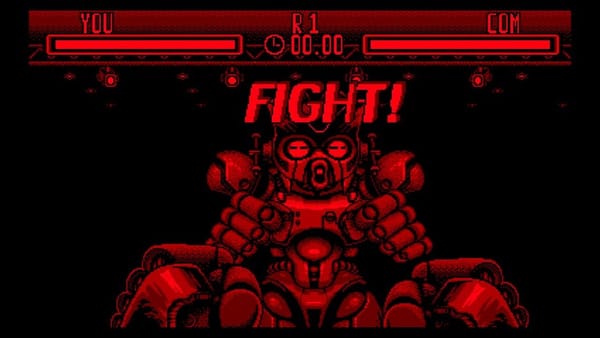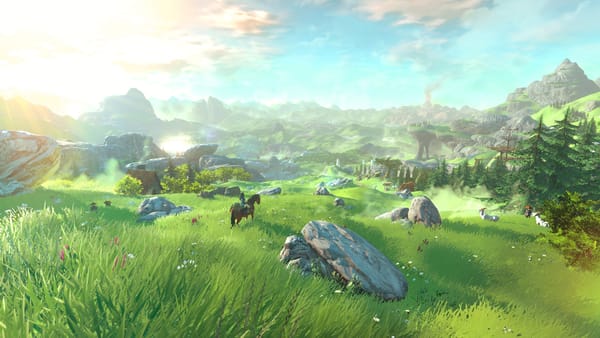#92: Tell me more
Sony buys Bungie; the NYT buys Wordle; no one buys Worms NFTs.
Okay, which of you had Sony buying Bungie on your Hit Points Consolidation Bingo card? You may now retire. I was absolutely floored by this one, I must admit, primarily because my initial reaction was: babe, will you never learn? They always end up breaking your heart somehow. And you seemed so happy being single!
In fairness there does seem to be a very genuine bromance building between PlayStation final boss Jim Ryan and the affably hench Bungie CEO Pete Parsons, judging by this GI.biz interview at least. They see their two companies as perfect bedfellows, ideally suited to one another. Sony gives Bungie resources and scale amid a period of unprecedented expansion; Bungie gives Sony, erm, well, let’s… hmm.
I was properly stumped by this one at first. Much as I appreciated how firm Sony was about Bungie’s games remaining multiplatform, both now and in the future — particularly after Microsoft’s mealy-mouthed messaging when it bought Bethesda and Activision — it also makes clear that Sony isn’t really buying anything tangible here, right? It’s not buying Destiny for PlayStation, nor seemingly the other projects (I hear there are at least two) that Bungie is working on in secret. Perhaps it’s buying Destiny for Spartacus, its supposedly imminent Game Pass rival; having a popular live game on the service at launch could certainly give the thing a boost. But that alone neither justifies the cost, nor explains the thinking behind the buyout.
Ryan has dressed this up as being about knowledge-sharing: about what Bungie can teach Sony about live-service game development. While that sounds a bit bonkers to outside observers (you’re spending $3.6bn on… an advice helpline?) it is actually fair enough, I think. Sony has big ambitions for ‘forever games’ — on an investor call this morning it said it plans to launch ten of the things by March 2026 — but has precious little experience of making them across its existing studio network.
Filings in the Epic v Apple case last year revealed that almost 50% of Fortnite’s total revenue between 2018 and 2020 was made on PlayStation. Yes, Sony’s 30% cut of that is a lot of money! But it is, needless to say, not as much as 100%. Sony is well aware how much it is leaving on the table by not having a Fortnite to call its own. If Bungie, having worked this stuff out from a standing start, can help speed up Sony’s progress in getting live-service games to market, that $3.6bn will pay for itself quickly enough.
To those of us on the outside, it may not sound like much, but this sort of information and advice is indeed a valuable currency for an organisation the size of Sony. Whether it’s knowledge, technology or actual staff being shared, there are clear benefits in having specific expertise and experience in-house versus having, well, none. I certainly sense a certain Naughty Dog influence in the general increase in quality of Sony’s firstparty output in the PS4 era, for instance. And hey, this stuff cuts both ways, as evidenced by the Bungie staffers who spoke to the Washington Post yesterday, and enthused at the prospect of discovering how Naughty Dog, Insomniac, Sucker Punch et al work their magic.
That aside, the benefits to Bungie are more traditional, and quite obvious. It has scaled up significantly since its split from Activision, taking on more space at its Bellevue HQ, acquiring another office in downtown Seattle, and expanding across the Atlantic with the formation of an Amsterdam publishing operation. It has committed to Destiny for many years to come, including its translation into other forms of media, and has multiple other projects on the boil as well. It has ratcheted up its recruitment significantly. And yet it is certainly not operating without fear. Destiny is still successful, with 860,000 people playing across all platforms the day the deal was announced, and over a million pre-orders in for the imminent major expansion The Witch Queen (for which Hit Points is strongly considering taking a week off). But it is not… enormous, is it? Destiny is not Fortnite (25m DAU) or even Genshin Impact (3.3m). Either Bungie’s recent expansion has been a fattening of the lamb ahead of a desired sale of the company, or the studio has expanded to the point where an acquisition probably felt, if not yet necessary, then at least like a decent idea.
I’m quite happy overall, honestly. I adore Destiny despite its many foibles, and I love Bungie (with the same caveat). I have friends and acquaintances over there and I’m chuffed for them all — particularly those who avail themselves of Sony’s offer to buy out their equity. If Sony proves to be as hands-off in the long run as it is currently promising to be, then I suppose I have nothing to complain about. Huh. Weird.
MORE!
- Also in the GI story linked up top, Jim Ryan says we can expect more acquisitions from Sony in future. “We are by no means done,” he said, a choice of words I find oddly threatening. “Elsewhere in the organisation, we have many more moves to make.”
- Wordle! Good lord, where will it all end. Yes, this is more proof that we can’t have nice things, but I think it’s a lovely story really. Millions from a standing start in barely a month. And the NYT is a fine fit: its Mini crossword and Spelling Bee were two of my daily rituals long before Wordle joined them, and I’m fine with them all being in the same place in future.
- Team 17 has abandoned its Worms NFT project, barely 24 hours after announcing it. In addition to the now-standard community uproar, a swathe of the publisher’s partner developers hit out at the scheme in public — with some going so far as to say they wouldn’t work with Team 17 again. Amused as I am to see gaming NFTs enter their Milkshake Duck phase, I’m rather conflicted about this. Part of me wants the broader industry to see this stuff isn’t worth the bother so we can all move on with our lives; part of me wants it to keep trying, then walking it back after a backlash, because it’s hilarious.
- Servers for FromSoftware’s Souls games have been offline for over a week, after the discovery of a software exploit allowing remote users to take over players’ PCs. Yikes. Reports claim that Bandai Namco has known about the issue for years, and only took action when the exploit was made public.
- This isn’t especially surprising once you’ve thought about it for five seconds, but it’s an eye-popping stat regardless: the value of game-industry M&A deals announced in January alone has surpassed the estimated total for the whole of 2021 (which was itself a new record).
- Mobile juggernaut Netmarble says 70% of its forthcoming releases will be built on blockchain technology. Some 20 titles are in development, and will span the wearying gamut of play-to-earn, in-game real estate, and NFTs. Bleh.
- The Federal Trade Commission intends to investigate the proposed Microsoft buyout of Activision Blizzard, it says here, suggesting a rockier road ahead than if the Justice Department had assumed responsibility for scrutinising the deal.
- EA has lowered revenue forecasts by $100m after admitting Battlefield 2042 did not pass muster. “Some of the design choices we made did not resonate with the community”, glistening humanoid CEO Andrew Wilson blubbed on an investor call last night. EA will be fine, of course: Battlefield accounts for less than 10% of its business.
- Sticking with Wilson a moment: months after proclaiming on an investor call that NFTs were “the future of our industry,” he last night downgraded them to this. Nice.
That’s your lot! As ever, please do the things with the buttons. I’m still swamped with work, so there’ll be no Hit Points on Friday unless some fresh megadeal gets announced. Please, game industry, do try and have a normal one. Cheerio!





